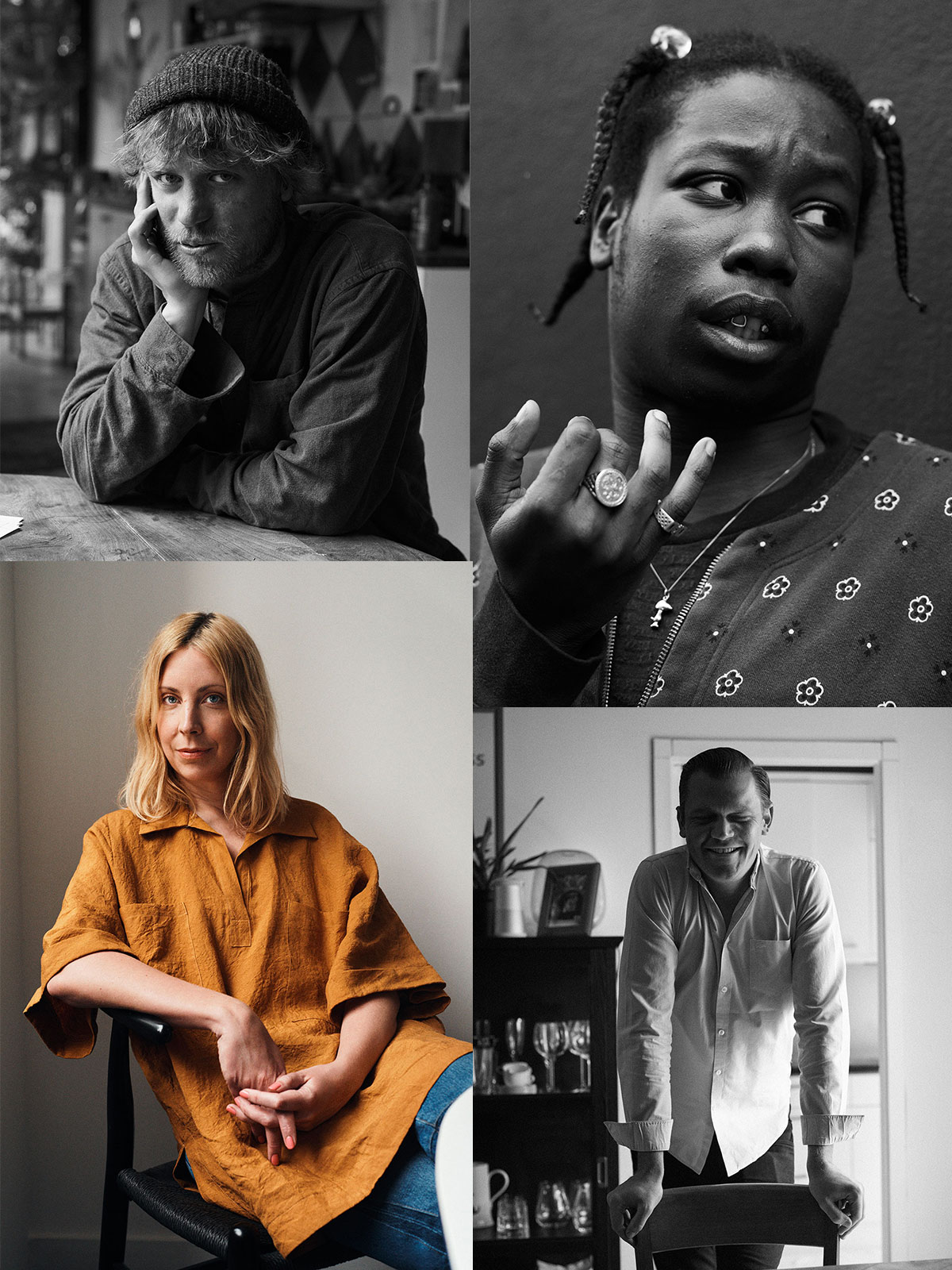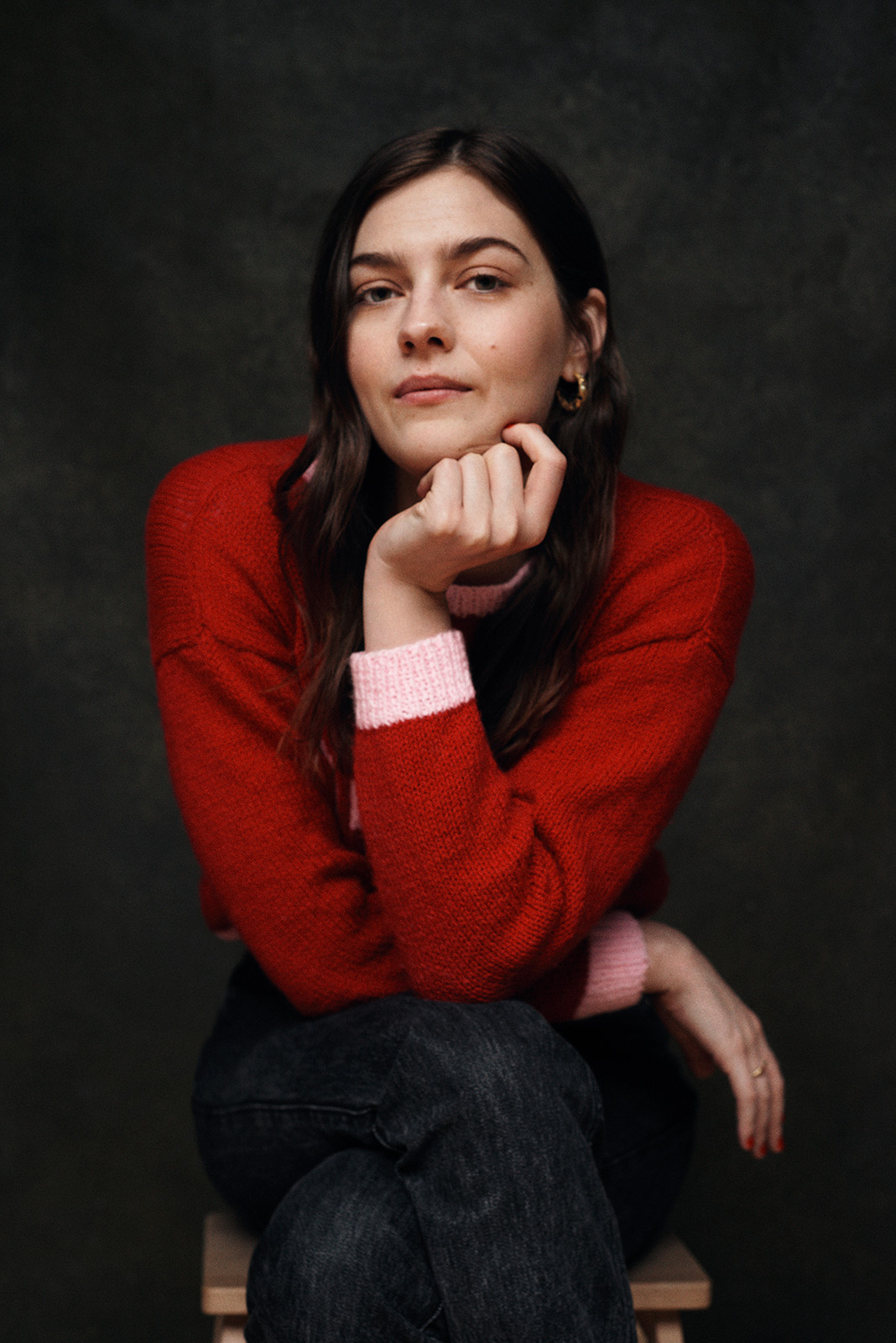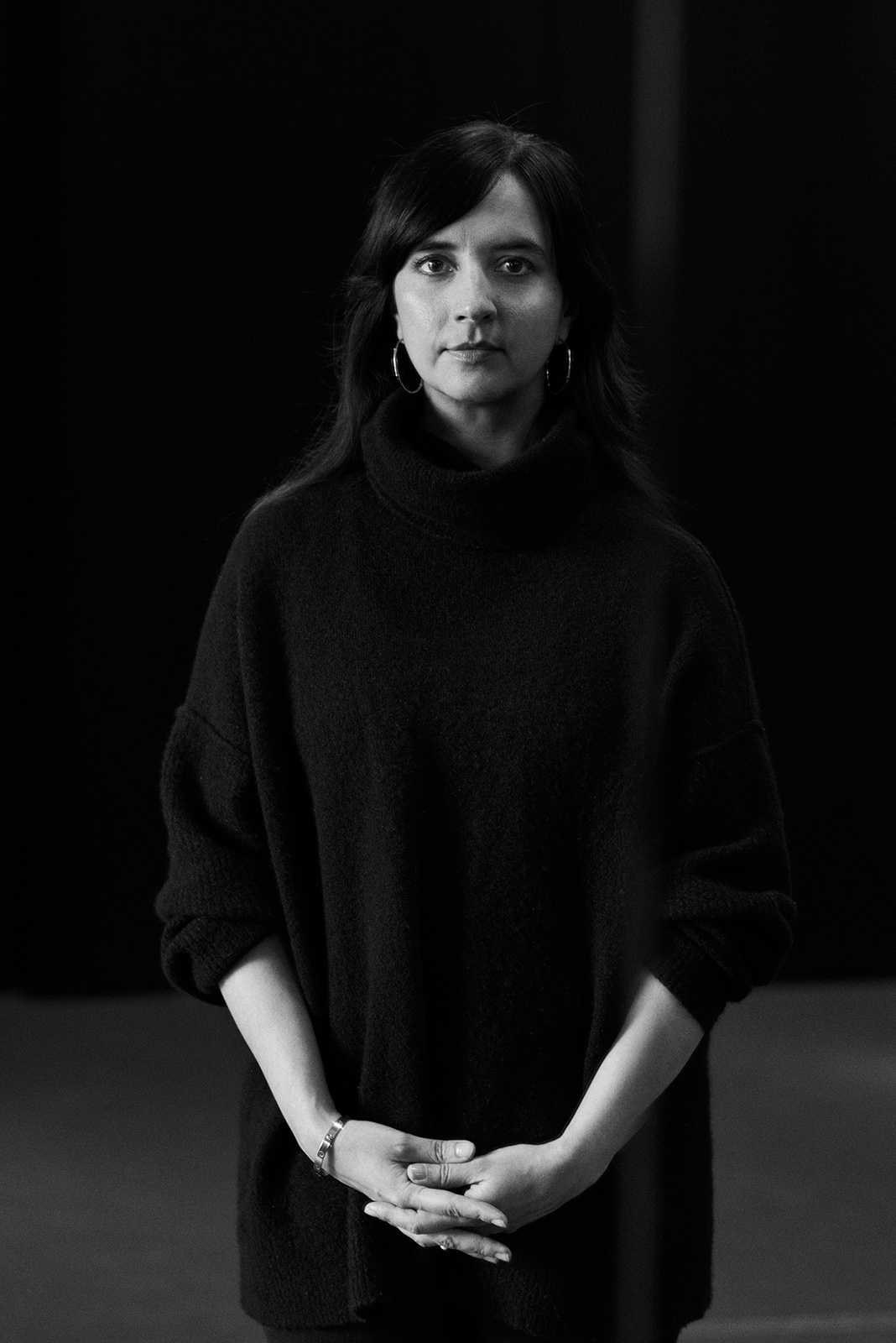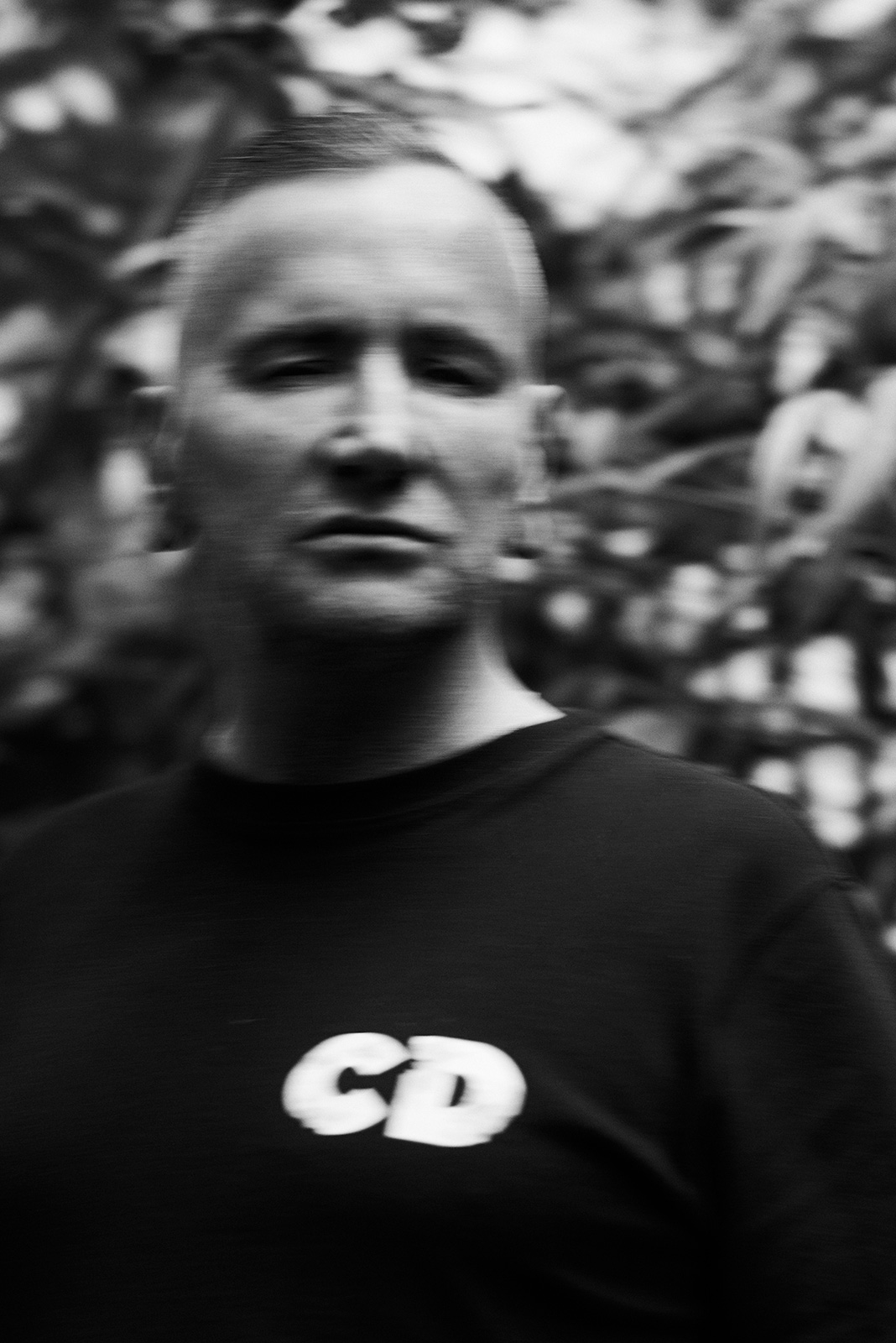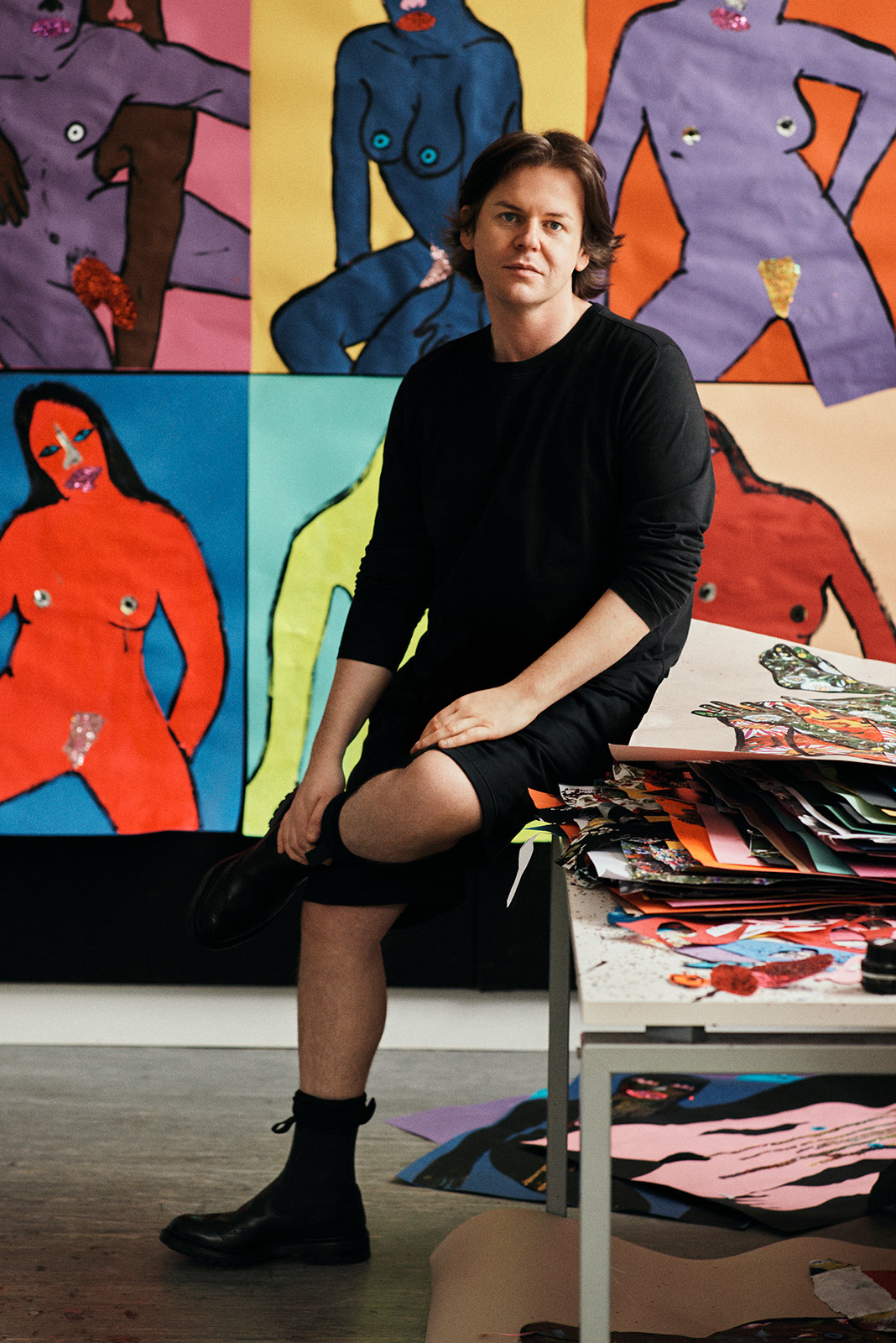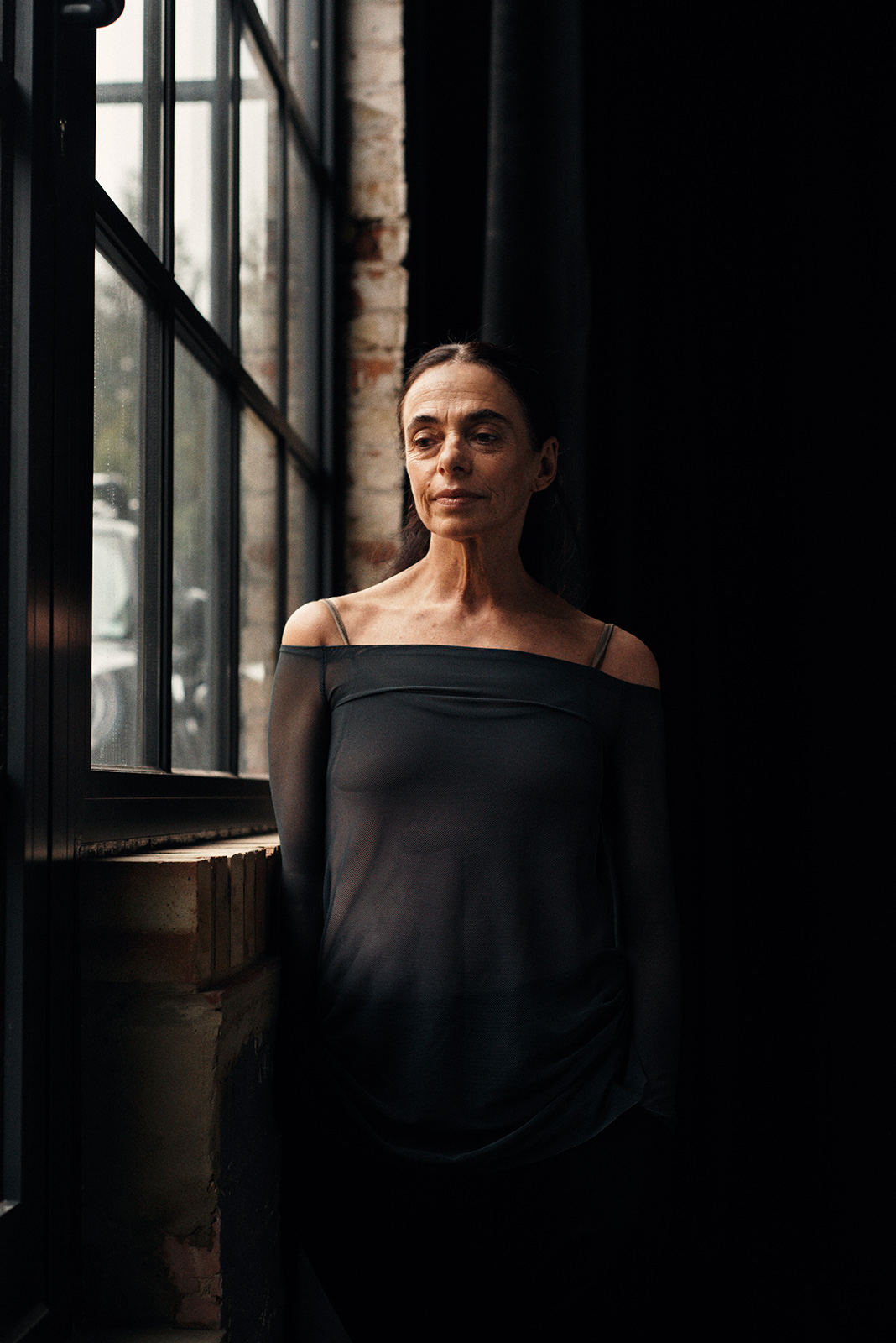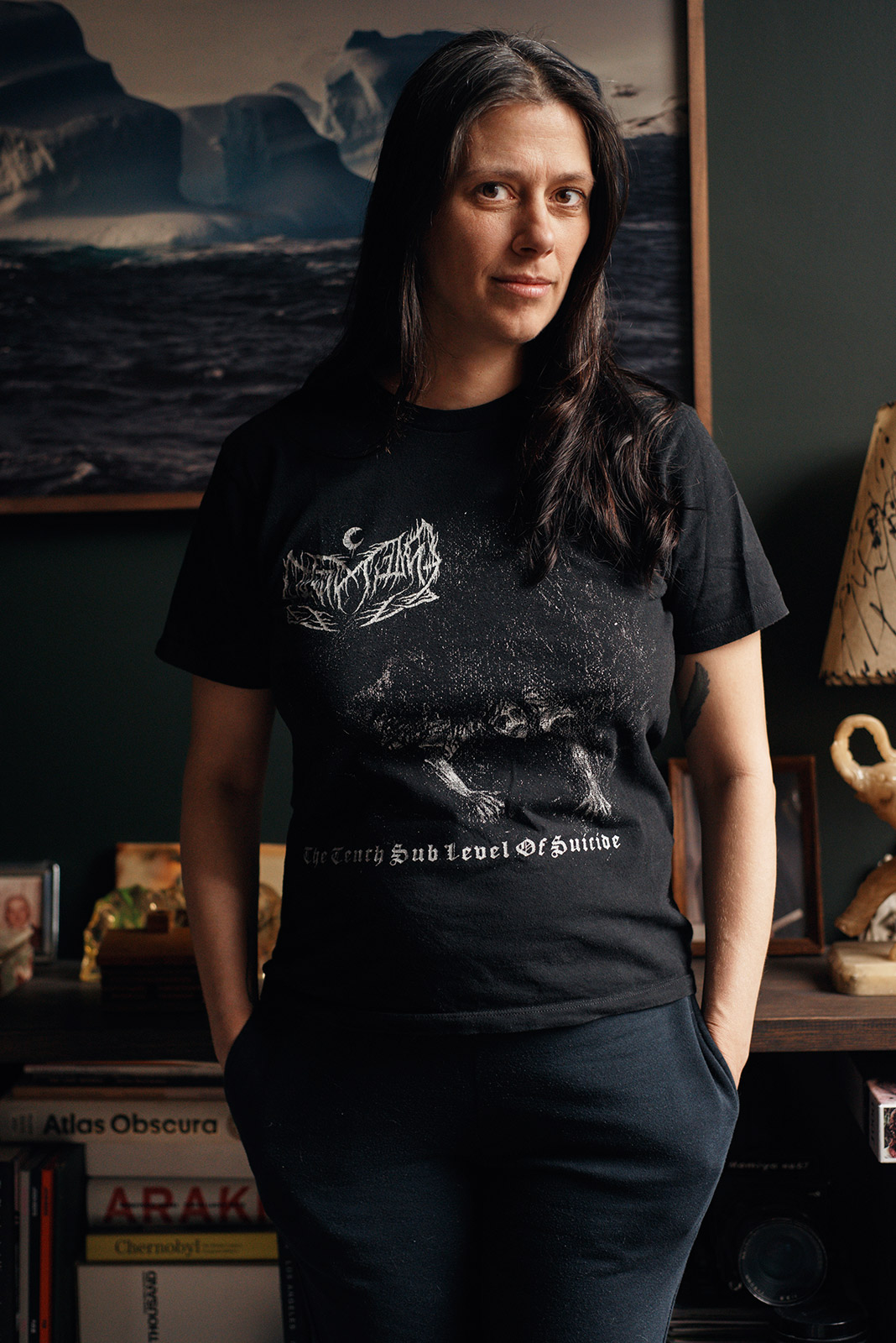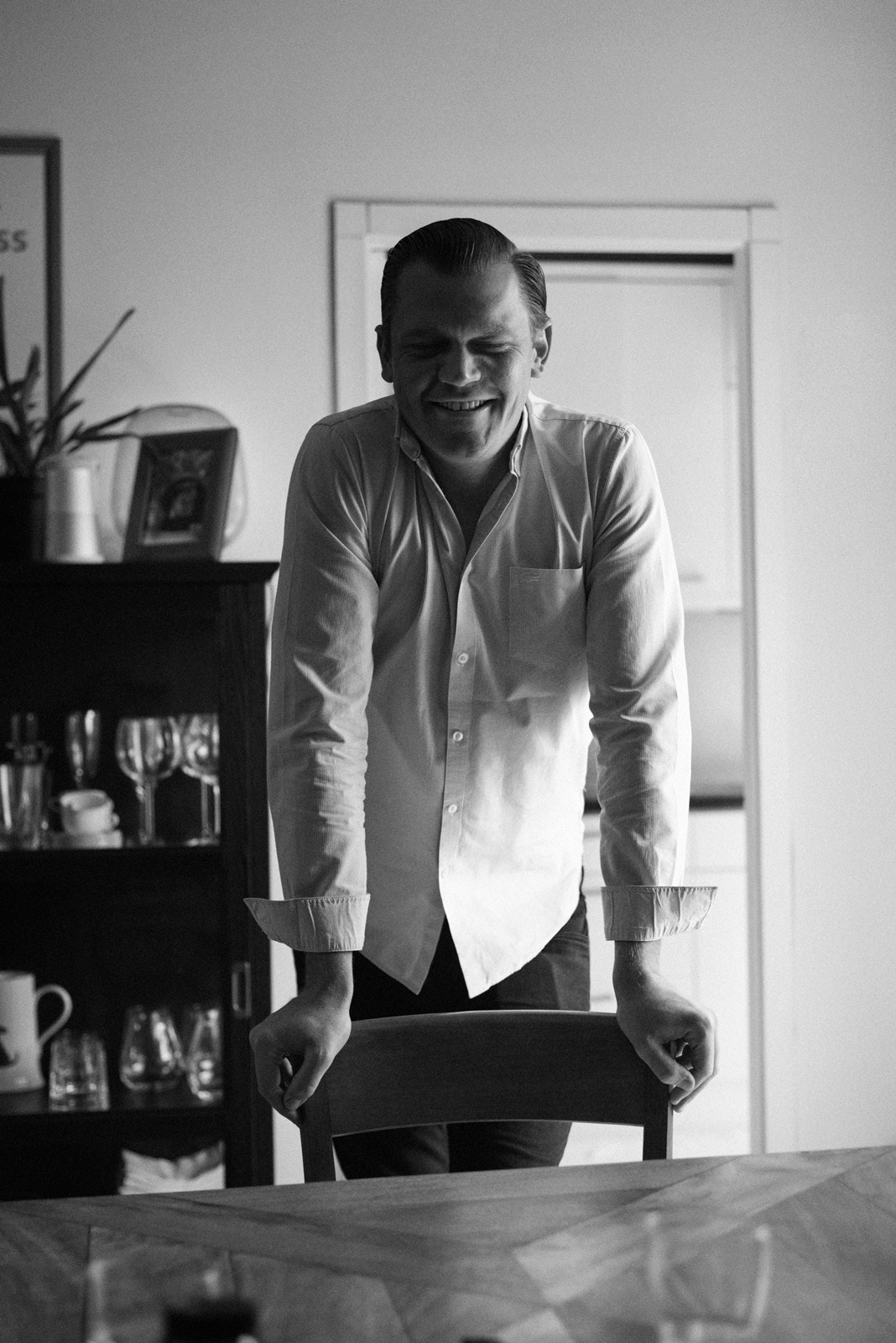6 creatives reflect on the impacts of Brexit and COVID, and imagine adaptive futures for their industries
It’s easy to be cynical about the state of the world. For younger generations, the end of the world has been a constant, ever-impending, not-so-far off future. First it was Y2K, then 2012. Today, our planet is, quite literally, on fire, while multiple strains of a deadly virus are circulating at alarming rates. In the United Kingdom, the pandemic has been compounded by Brexit, throwing its creative industries and its wider economy into chaos.
Across its disciplines, however, the arts have been a solace. Locked inside, shut off from any offline form of socialization, entertainment served as the last delicate thread by which we clung to some version of sanity. Film, fashion, dance, literature—the arts remind us why we want the human race to survive the mostly self-created disasters that threaten to drive it to extinction. Through the closure of live venues, pulled funding, and threats to safety, artists have adapted. They’ve moved their practices to their bedrooms, live-streamed, built home studios, coordinated online creation.
For Document, British photographer Edd Horder captures some of those who are shaping the rapidly changing state of the arts. From actors to designers to dancers, Horder’s portraits celebrate the faces creating the performances the world consumes for catharsis.
Alessandra Ferri, one of the rare few to be granted the title of prima ballerina assoluta, emphasizes that, for many, art is not just passion, but work upon which they are reliant. “Their art is what they live on, what they pay their rent with, what they support their families with,” she explains. Actress, pianist, and model Amber Anderson, best known for her role as Jane Fairfax in the 2020 film Emma, stresses that “it’s part of our DNA to be together and be creative,” speaking not just of artists, but of humans. DJ Fat Tony, the crowned prince of clubs and memes, “never stopped dancing.” Below, Ferri, Anderson, Fat Tony, ballet director Cassa Pancho, designer Christopher Kane, and creative fashion producer Sylvia Farago explore how Brexit and the pandemic have been shaping their worlds and share their hopes for its future.
Amber Anderson, actress
As an actress who travels and collaborates both intimately and internationally with those you work with, what effects have you felt as a result of COVID and Brexit thus far?
There has been a feeling of a shrinking or a condensing of the energy around us which usually feels varied and vast. Not just as creatives, but as human beings, the freedom to explore and collaborate is what inspires our expression and makes our lives and culture rich. It’s how we learn to understand each other more and find connections. As audience members, it is often in the arts that we find a mirror to our own experiences and a cathartic way to process them. Of course it is right to have measures in place during the pandemic, but now more than ever I feel in myself and everyone around me an increasing hunger to be together again, exploring, creating, dancing, and expressing ourselves.
What are the concerns of your creative community at this time? What issues have you and those in the acting industry been predominantly discussing?
I’m concerned for the careers belonging to friends who tour in any capacity, or those earlier on in their careers who will not be able to afford the new carnet costs and overseas tax declarations. As a creative, you often invest years of time and thousands of pounds into your own rise to success. This is already near impossible if you do not come from money or have support in some way. I was 17 when I moved to London, lived off £30 a week, and worked part time jobs. I had to support myself in Paris, Milan, and much of Europe in order to become established. This was only vaguely possible to do because I did not have to pay for various things like visas or overseas taxes. The government, after suggesting that we all find different jobs, seems to be showing a general lack of concern or urgency in this matter, which is deeply depressing and surprising, in a way, given that these industries are worth tens of billions of pounds.
As a public figure, what message would you like to share with both the general public and the government regarding measures for safeguarding the future of the drama and performance industry?
It’s really been shown over the last year that these are not just extracurricular hobbies, but cornerstones of our mental health and enjoyment of life. It is part of our DNA to be together and be creative, and the lack of a proper plan for travelling artists with the EU doesn’t just affect actors but musicians, dancers, theatre directors, operatic performers, and comedians, nevermind the technicians and crew that help to make the shows happen. We run the risk of a whole generation of talent never making itself seen because it is just too difficult to make it work. I always have hope. I think that people will always create no matter what, but let’s demand that the powers that be support us and nurture the younger generations moving forward.
Cassa Pancho, director of Ballet Black
Alongside producing stunning performances, your work also spreads a vital message concerning diversity in the dance industry. Can you talk about why it’s so important to safeguard your company’s work in order to continue actioning this mission more widely?
I am frequently asked if Ballet Black is still needed in 2021. And my answer is always a resounding YES. Even now, in 2021, we are only at the start of real discussion about what it means to be a Black or brown artist in classical ballet in the UK. And by ‘real,’ I don’t mean panel discussions that don’t go anywhere. I mean digging into the work and having honest, frank discussions, from tangible, easy-to-understand ideas like having ballet tights and shoes in shades that account for Black and brown skin tones to the deeper issues surrounding our traditional ballet repertoire and the representation of cultural identities within those works. For example, British ballet no longer uses blackface, and is slowly removing the use of brown and yellowface on stage, but there are still a lot of ballets that contain ethnic caricatures that some people within the ballet world view as a legacy that must be protected and preserved. Ballet Black’s existence provokes the question, why does a company like this need to exist, and it forces that question to be examined. Our own repertoire and the diversity of our artists is essential to the UK ballet scene because, right now, we are the only ballet company in the UK that can tell Black stories and give them a platform at large-scale theatres like the Barbican in London and smaller houses like DanceXchange in Birmingham, meaning we get our work out to a really wide audience and a wonderful cross-section of the population.
Over the past year, what have been your main concerns for your work resulting from Brexit and COVID?
When the closure of theatres was announced, we were about one week away from the premiere of our new double bill at the Barbican. No matter how many risk assessments or contingency plans you write, the closure of all theatres due to a global virus was a shock to the system for everyone in the arts; not only could we not perform, we also couldn’t have any physical contact, and that is 95% of the job. Ballet Black is very fortunate that we’ve been able to find ways to keep going, but we are part of an ecosystem: at one end, there is a generation of vocational students who will graduate from a three-year course of arduous training with no jobs to go to. There are freelance artists, crew, and administrative staff who have been without jobs for so long they have been forced to find work outside our industry. There are theatres that may never recover from the financial devastation brought on by COVID. We all feed into each other, so even if pockets of the arts industry are surviving, the arts as a whole is incredibly fragile. Because we haven’t been able to earn money for over a year, we’ve had to trim the budget. I won’t be able to hire any new, young, upcoming Black British talent without finding additional financial support, [so] Ballet Black won’t provide that vital professional experience to new dancers, and we won’t have much-needed cover if something happens to one of our dancers, like injury.
As far as Brexit goes, the red tape surrounding visas, and essential things like freight for sets and equipment are causing the cost of European touring to go up and up, and I worry that these issues will make UK companies less attractive to overseas promoters. It feels like we will emerge from COVID only to find the European touring landscape bleak.
What are ways you’ve had to pivot to cope with what’s been happening?
We discovered Zoom fairly quickly and moved training sessions for our company dancers online. Once the government announced that professional dancers could continue to train and rehearse, we were able to reconfigure our studio and dressing room, and returned to work. One of the many pivots we’ve had to make is to ask how we can connect with an audience without live performances. Our temporary solution of sharing archive performance footage free of charge was okay, but none of it was made for sharing, and a lot of companies were doing it; the internet was awash with free stuff, which was really exciting at the start, but I think a lot of people soon became overwhelmed and switched off to it.
While this was happening, George Floyd was murdered in the US, sparking a fresh wave of awareness of the Black Lives Matter movement, bringing it into mainstream consciousness. I wrote a brief ‘beginners guide’ about how to examine your dance school or organization. It’s a personal, daily challenge not to let my cynicism of those black squares on Instagram cloud my ability to be of use in the movement for equity for Black, Asian, and ethnically diverse dancers.
This, lockdown, and COVID made me even more determined that we needed to hear—and see—Black stories represented in classical ballet. Our first attempt at dance for film was a short piece entitled Like Water, created by our company dancer and choreographer, Mthuthuzeli November. Provoked by the Zong massacre in the late 1700s, Mthuthuzeli wanted to pay tribute to our Black ancestors—enslaved, drowned, treated as cargo—and acknowledge the ongoing resilience of generations of Black people. We are also planning to release a very special new dance film, Eightfold, directed by Mark Donne, featuring eight choreographers from around the world. With this film, I wanted to show the passionate, joyful aspects of our diverse existence, not just the despair. Blackness is constantly categorized as a singular experience, but we do not all share the same background, beliefs, trauma, or even skin color. I felt compelled to respond to the recent BLM wave by showcasing the multifaceted aspects of joyous human emotion, and also the incredible artistic power of Ballet Black, an organization that has been championing positive change for Black and Asian dancers for almost twenty years. I hope, with these films—and more to come—that we can develop new ways to share ballet and bring a different audience to our work.
DJ Fat Tony, club DJ
What do you think people need to know about how Brexit and COVID have impacted the music industry in ways that haven’t been widely publicized?
The mere fact we now need a visa to go and work in Europe is disgraceful. For example, a summer residency in Spain would mean I’d have to pay a fortune in tax and visa fees. Promoters aren’t going to want to book London DJs because it won’t be cost effective for anyone with all these additional costs and red tape. As a club promoter, bringing talent back into the UK is going to be an absolute nightmare. It feels like the government is trying to destroy the arts entirely from the inside out. The lack of consideration for our industry is off the scale.
What is the new normal for musicians or artists of any kind? Someone like Elton [John] takes 1,000 people on his tour, how the hell do you take care of that? Will we be able to fill our seats or venues enough to even make financial sense?
The music industry has had to shift away from live performance during the past year, turning to live streaming and digital activations. Do you think there have been any positives to this pivot in sharing and consumption of music?
Yes, 100%. I think it’s a positive thing. Social media is a big part of our lives whether you like it or not. If you went to a concert beforehand, most people watched on their phones anyway. What’s the difference? This pandemic has [required] us to use technology in ways we never thought we’d have to, and elevated our shows—even those from the comfort of our living rooms. We live in a fast, free world where people are realizing you can do this all from home. Of course, I know it’s not the same thing and it will never replace the real thing.
Watching shows and listening to music at home isn’t a new concept to me so live streams are a bonus. Yes, people are losing out on gigs, or on jobs, which is tragic. Of course this has its cons, but it also has an awful lot of pros. Don’t get me wrong, I can’t wait to get back and thrive on the dance floor. Over the last year I’ve adapted like I have my entire career. It’s all about change and embracing that change, overcoming obstacles the best way you can, and I feel privileged to be in that position. Who knows what the future holds.
What tangible action needs to be taken to safeguard the creative industries at this time?
The government has done nothing so far and they need to be held accountable. Yes, they kept a lot of venues afloat by giving them money, but what about the light techs, engineers, DJs, singers, set designers? The self-employed are what keep the creative industry alive, and we’ve very much been forgotten. We need more consideration for the ones that actually do the brunt of the work, the heart and soul of the arts, the cogs that keep us going. Playing music is my career, not a hobby, and they should start treating it as such. Same goes for the guitar player, the artist, the actor, the sound tech. These are life-learned professions, and they’re not something that can be sneezed at. Pardon the pun.
Christopher Kane, fashion designer
How has your business been impacted due to both COVID and new Brexit restrictions?
2020-2021 has certainly been a time of significant change for us as people and as business owners. COVID and Brexit forced us to really look at the business in depth and use this time as an opportunity to accelerate plans we started post-Kering. Post-Brexit, we need to maintain free access to the EU, the region makes up approximately 40% of our wholesale market. It is still not entirely clear what lies ahead. There is so much uncertainty around increases in tariffs and taxes. Our teams have been working hard to do their best to limit exposure but, unfortunately, this stuff is out of our control. It is very frustrating.
As a designer who usually stages seasonal runway shows and has a flagship London store, how do you feel about the need to pivot from physical experiences towards more digital experiences?
I feel ready for the challenge. As much as I love the fashion show format, I am open to doing things in a simpler way. Fashion shows are the equivalent to having two stressful weddings a year! We are probably the last generation which feels that digital isn’t as meaningful as real life, so it is something we all have to get our heads around fast. I want to do things that make me happy and not just for the sake of it. We’re starting by investing in ChristopherKane.com. It is time for a refresh, and that is exciting.
You have a reputation for celebrating Britishness in your work and are a tremendous success story for aspiring designers. How do you hope to support young designers at this difficult time? What advice would you offer them to help them survive and thrive?
It’s vital for us all that young talent keeps coming through London, we fully believe that. I was so lucky to have the mentorship of Louise Wilson and, through her, Sarah Mower of US Vogue, then Anna Wintour and Donatella Versace when I was coming out of Central Saint Martins. I feel very strongly about giving back as much as I can to help people who face adversity. Something we’re very committed to seeing is a more representative fashion industry by supporting young Black and brown creatives. We created our PLATFORM initiative in 2020, the first part of that was to give over our Instagram to young creatives to promote their work. We have been working with the students at the Fashion Journalism course at CSM and hope to involve more colleges and universities soon. These are testing times for us all, but we need to get behind our young people right now. My advice [to young designers] would be to find your niche, work hard, and be humble at every turn.
What tangible action needs to be taken to safeguard the creative industries at this time?
I just hope that the government can see the full value of the creative industries and offer the financial aid they so need. Can you imagine London without theatres, museums, and galleries?! It’s the smaller establishments I worry about the most. As individuals, I think everyone can contribute in their own small way by supporting their local theatres, museums, and galleries as soon as it is safe to do so. I can’t wait to get out and about again. London is still closed for business at this point but I think that people are ready for stimulation and entertainment outside their homes.
Alessandra Ferri, ballerina
As a performer, what effects have you felt as a result of COVID and Brexit thus far?
For freelance dancers who do not belong to companies, [dance] is not only their passion, but their job. Their art is what they live on, what they pay their rent with, what they support their families with. We are like Olympic athletes who have to be at top form all the time. Not only are you not working, but you’re not able to keep yourself at a level of fitness and training that will allow you to be ready for when things get back to normal. I taught a few classes to students, and a lot of dance students have been doing the whole year in their living room. This is a tragedy, because it’s fake training. You need the space, dance is movement is moving through space.
There is also something really beautiful that has happened in all this, which is that there has been a development in companionship. The dance world has become one. We all learned to support each other, to reach out to each other, to share our experiences. That has made us all grow as individuals.
You said, for dancers in the dance industry, this is their work, this is their livelihood. Do you feel that the government and those in power who are making the rules around things construe as if it’s a hobby?
Absolutely. I think it’s because, in every country, the number of dancers is really minimal compared to the general population. They don’t have a great big voice, because it is a small category of people, and, usually, very young people. Because the lifespan of the career is so short, they’re not considered by the government. The fact that there’s a big global community of dancers may help us stick together and develop a voice so that we can all be heard as [one], and [have dance] recognized not just as a passion and an art form but also a job.
You talk about this amazing united energy. Sometimes the dance industry is known for people who are motivated and competitive. Do you feel there was energy like that before that has shifted?
We are all competitive and that will always be there. But it’s not about, I win, you don’t win. It’s stimulating to see somebody else doing something incredible. The pandemic is global. It is not something that is happening to a dance community in a particular country, it is happening everywhere. [Professional dance is] a small community, so it’s been very easy to reach from company to company, or from dancer to dancers all over the world, to share the experience and the feeling of companionship, this wanting for dance to survive. It is not just for us, personally, but for dance.
What are your concerns for the future? What actions need to be taken to avoid further damage to the dance industry?
We can’t travel. Everywhere you go, you have to stop for two weeks [to quarantine] before you start rehearsing, then come back and stop for two weeks—which means that nobody is able to travel or accept invitations to other countries. Brexit will also make it very difficult for people to travel, needing visas all the time. I can’t quite picture what will happen once things start again. Technology has had a large presence during this pandemic, but I don’t think that that’s going to be the future. Dance is amazing when it’s live because dance is energy. It’s the use of the space, the sharing of energy between the audience and the dancers through the space. That’s the real source of life, that exchange of energy. As dancers, there have been some very difficult days where it’s hard to find the motivation. It’s very physical, strenuous training that we have to do every day. And when you don’t have real motivation, because you’re not performing or rehearsing, it’s very hard. This is where we develop our willpower to be stronger than the little voice that tells us we’ve had enough. We’re all going to come back stronger and full of joy.
Do you think there’s any chance that these difficulties might discourage people from joining the dance industry?
I don’t, because in order to become a dancer, you need to have real love and passion. It’s not a profession that you choose on paper. People that end up dancing are born with that gift and that fire inside. So there’s nothing that will stop them.
Are there any tangible things that people can do to support? Are there any initiatives or actions that people or supporters of the dance industry can take?
There are a lot of freelance dancers out there that are not helped by anybody. That’s who the government has to look at, because those dancers are as important as the ones that join major companies or that are established. A dancer needs to train every single day, and just the fact that there are no dance studios around where they can go and train—that’s something to look into and see if there are spaces that can become places where dancers can meet and work.
Sylvia Farago, creative fashion producer
As a producer, what are some of the issues you’ve encountered so far as a result of COVID and Brexit?
It’s been a real challenge navigating the government guidelines for both COVID and Brexit with regards to teams travelling.
Initially, when COVID first hit the world, there was some time to stop and work out next steps in those first lockdown months. Implementing COVID measures on set—sanitary measures, company guidelines, etcetera—was a completely new undertaking. For every producer, a team’s safety is top priority. Having to deal with a virus that was constantly evolving meant the science and guidelines changing too, and being on top of that was a heavy weight to carry, especially with everyone turning to you for advice. We spent a lot of time researching and really trying to dig out the correct information. We spent a lot of money on COVID measures, and brands have also taken responsibility FOR covering extra costs, which is great. Just like the collaboration that goes into a product, it’s a collective responsibility to get it right and to stick to the rules!
In regards to Brexit, that’s a maze at the moment. I’ve spoken to multiple immigration lawyers about teams travelling, but everyone says something slightly different. It doesn’t help that Brexit happened in the middle of a pandemic. There just isn’t a proper procedure for travel, trade deals, or customs on packages being sent to the UK, for example. And, to make it worse, because of COVID, there aren’t enough people working in customs to process it all!
Are you witnessing a ‘brain drain’ effect as a result of Brexit, whereby creatives are moving or taking their business overseas, or looking to employ talent outside the UK? Is this something you are concerned about?
At the moment, most brands are nervous about sending clothes to the UK. After all, we’re now a ‘carnet country’ and everything will cost more. Most EU brands want to stick to working in the EU, working with EU based teams. Until there is a proper procedure for travel in place and COVID restrictions are lifted. I can’t see this changing for a while. Luckily, we have a Paris office so we still have a presence there—even though I can’t physically travel there without a visa for now. Like some people, I have applied for an EU passport through family heritage.
What are your primary concerns for the future of your field of work?
The main concern is will there be enough work in the UK. And then reduced budgets with unrealistic expectations are always an ongoing concern. Budgets still seem to be getting smaller and smaller, with deliverables getting bigger and bigger. Brands need an enormous amount of content. I had to ensure throughout the pandemic that I did not let any staff go. They are the core of the company. I saw some fashion companies letting people go, which I wanted to avoid. I don’t want to be all doom and gloom! Things could have been worse and we were lucky to work with great clients like McQueen, Versace, Adidas, and Balenciaga after the initial lockdown was lifted. I’m optimistic that it will get better. It will be a tough couple years, but hopefully things will fall back into place.
What tangible action needs to be taken to safeguard the creative industries at this time?
There are a few government petitions going within the fashion industry. But I’m conscious that just about every industry in the UK has been affected by a bad deal on Brexit. I’m sure we’re in a queue of industries whose issues will have to be addressed at some point post-COVID. This message is more to all the brands out there: keep UK talent and businesses working!


